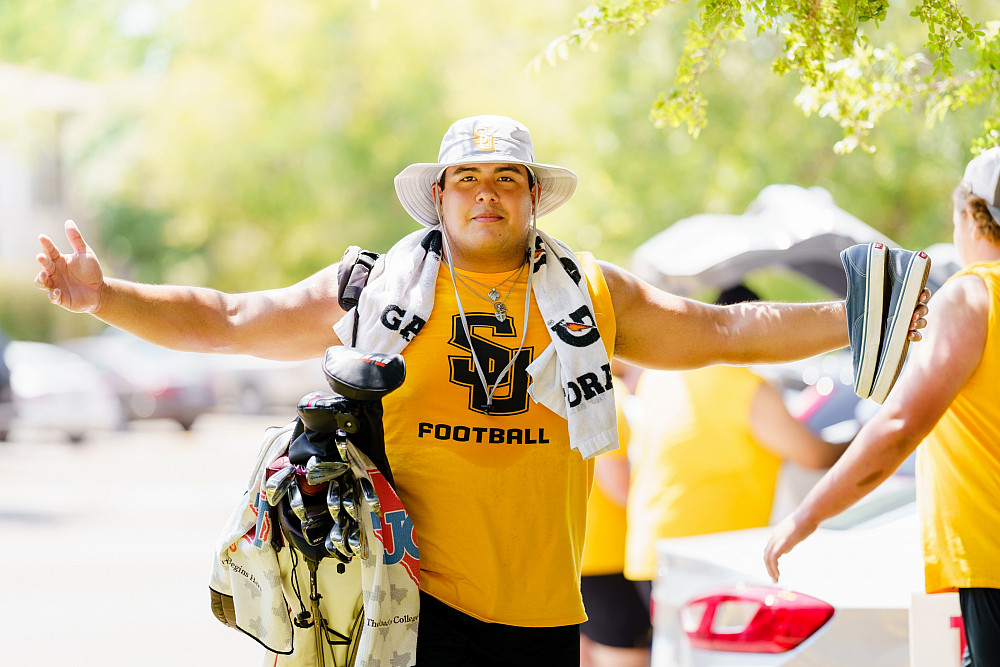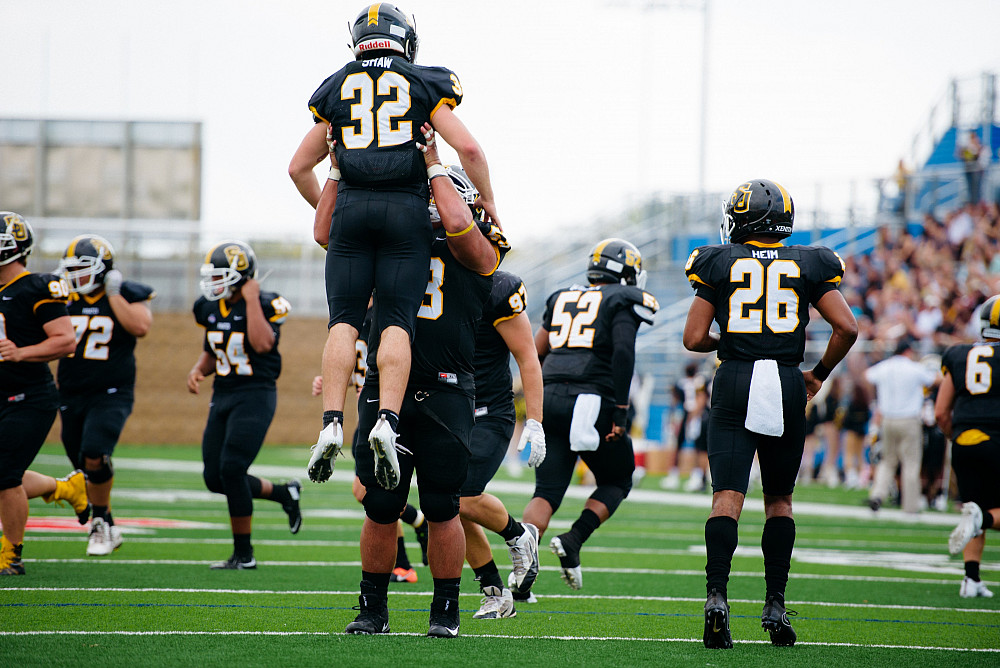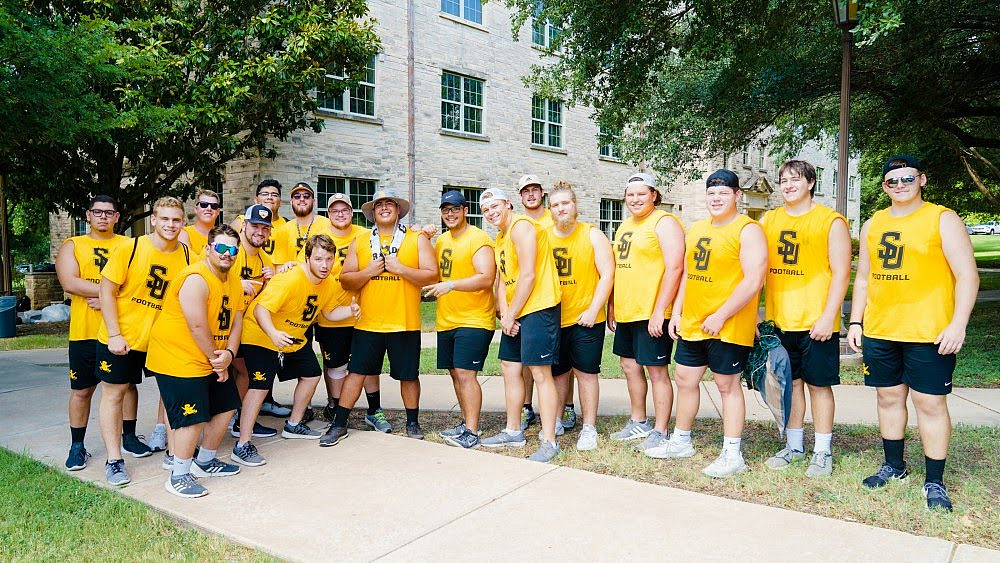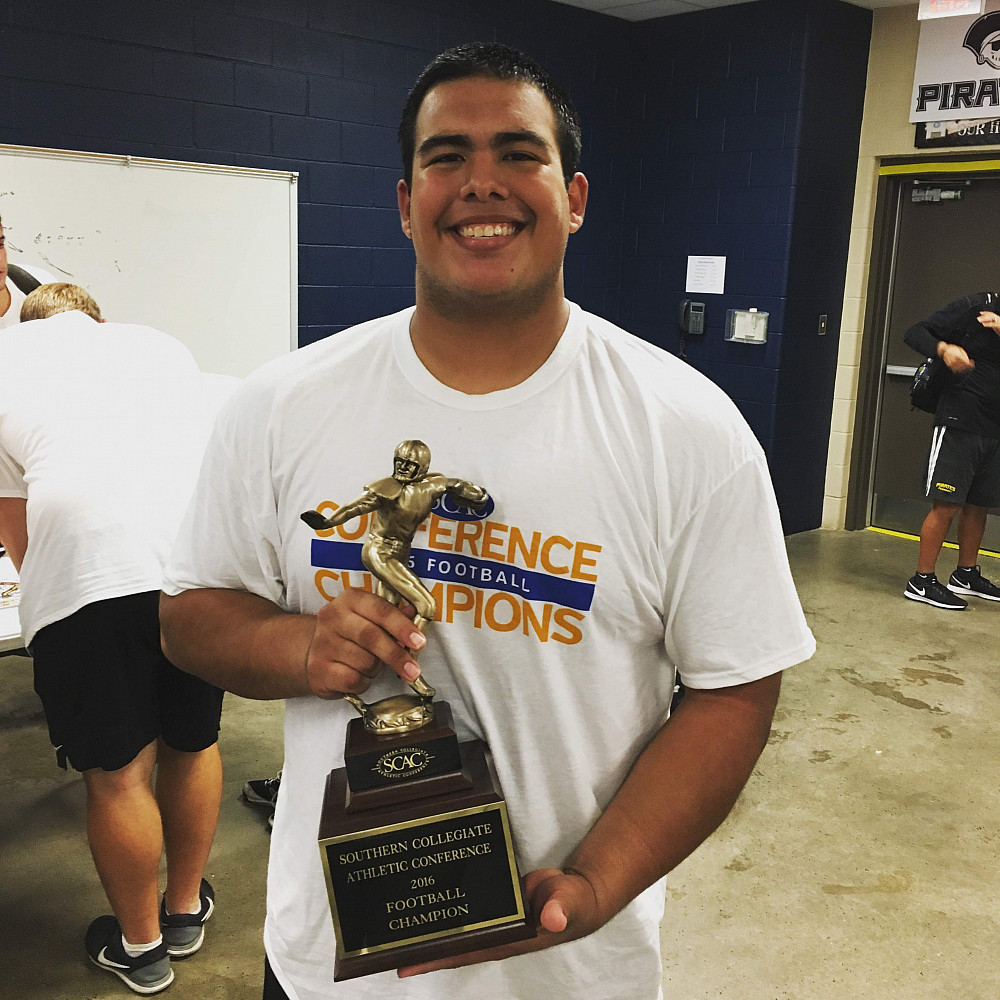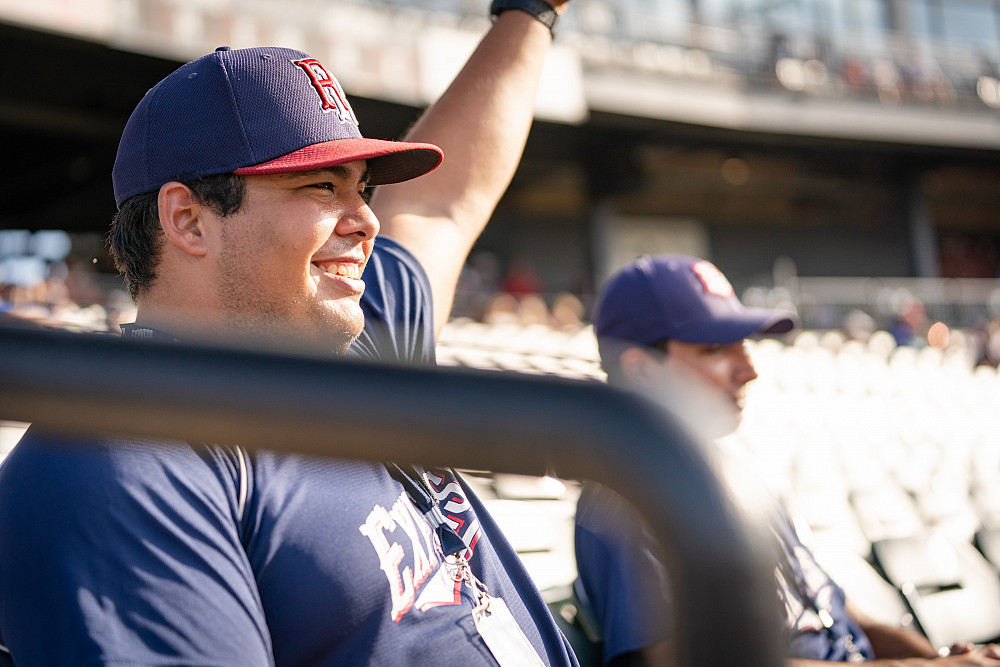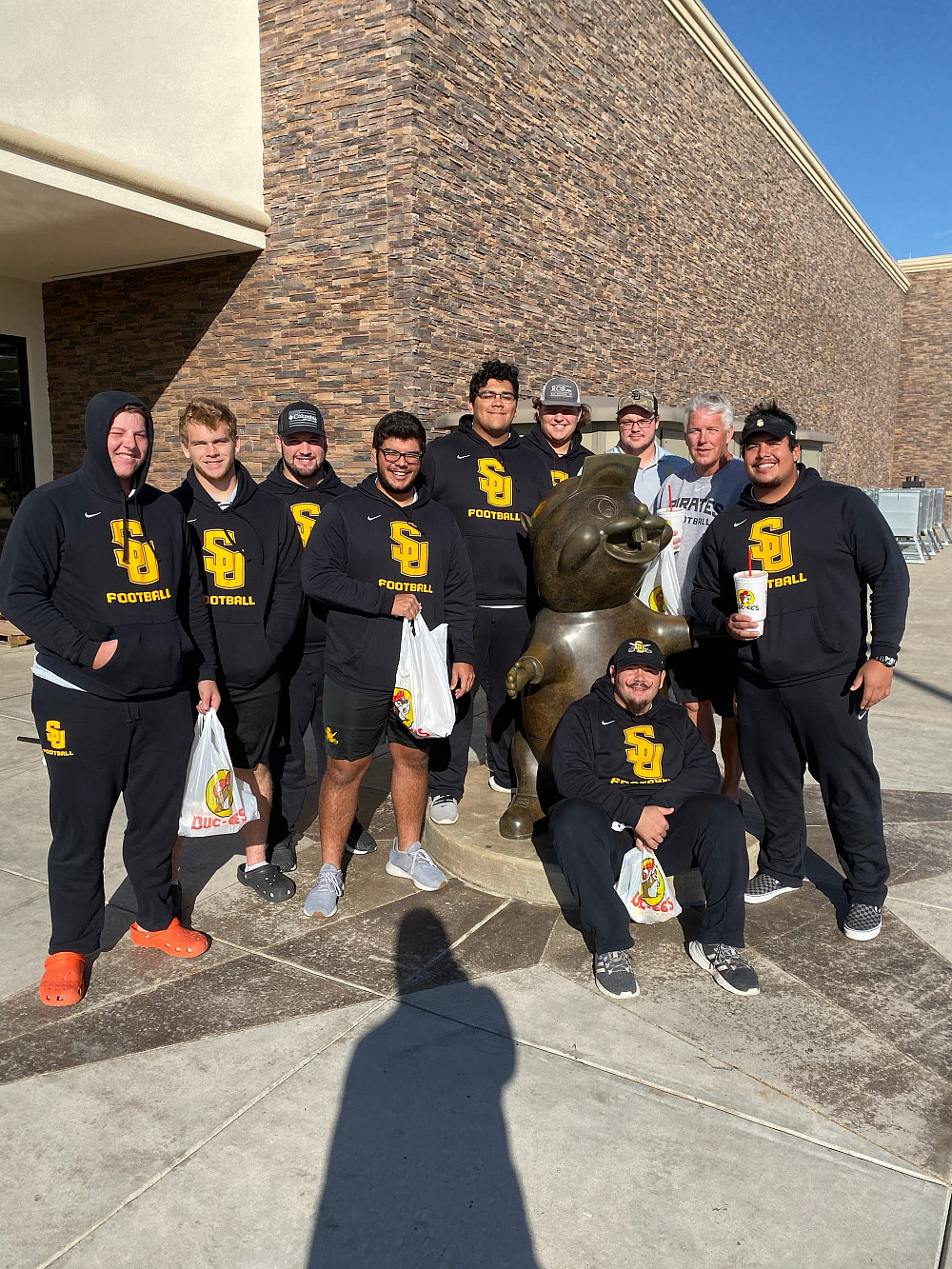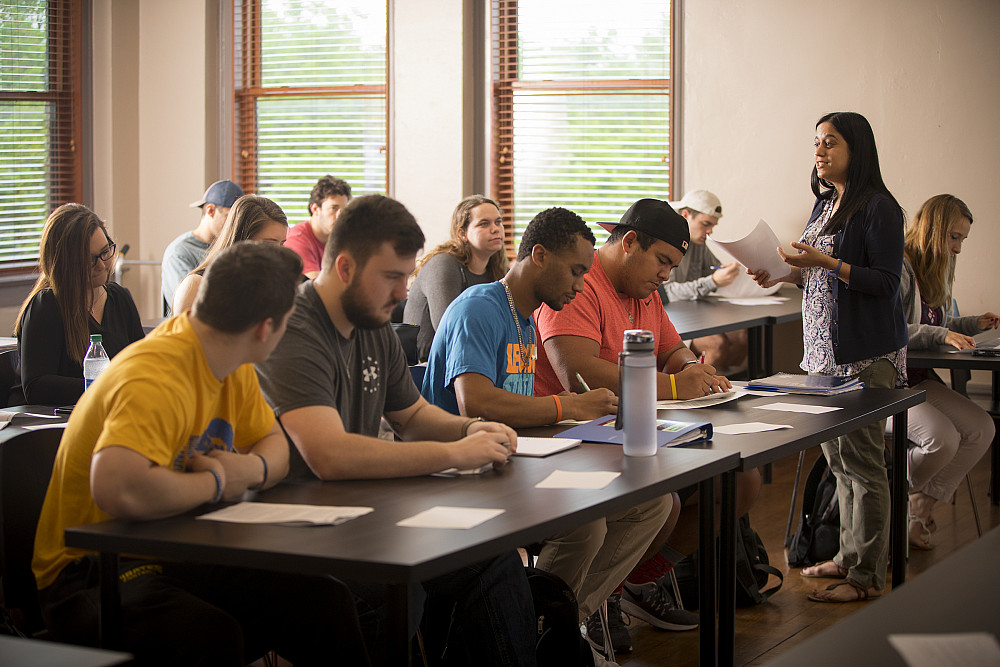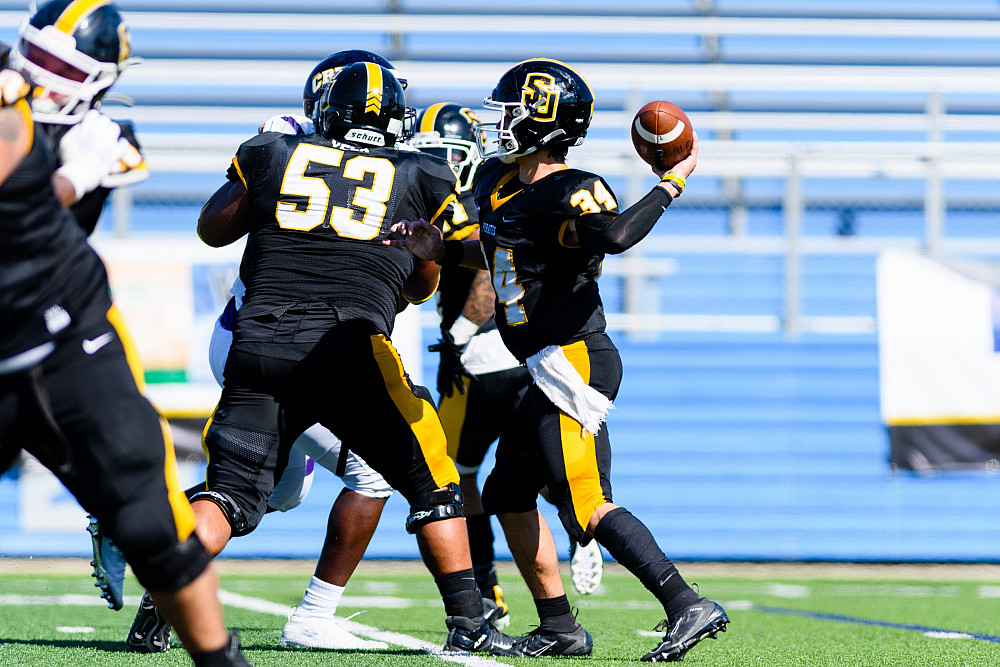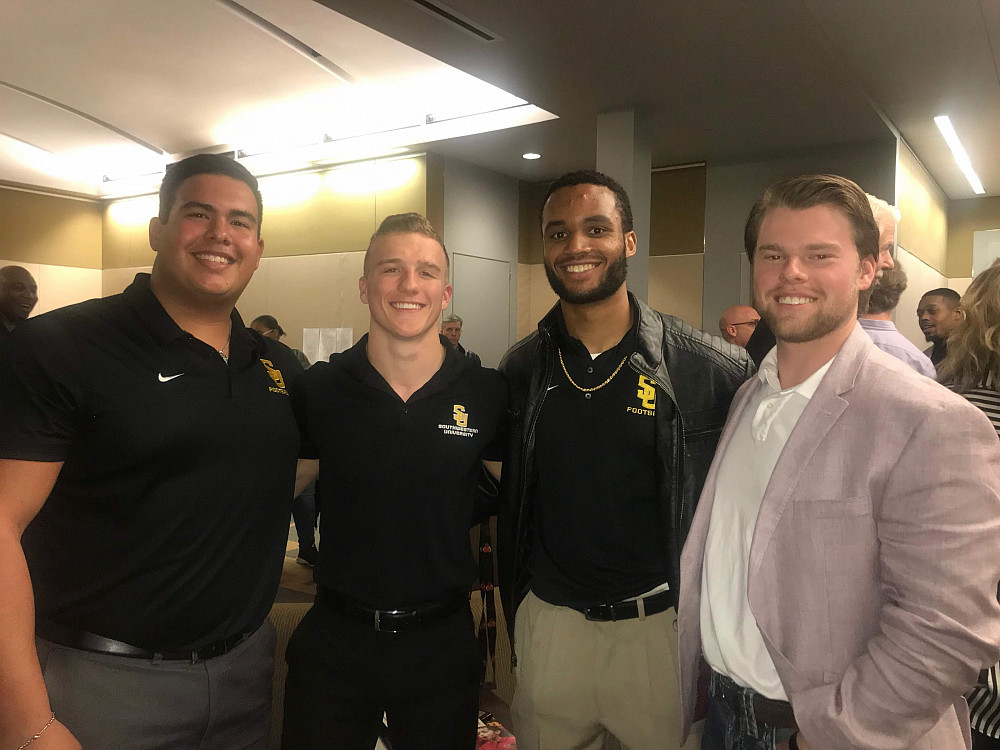News
8 Things I Wish I Had Known as a First-Year Student–Athlete at SU
November 12, 2019
November 12, 2019
As a senior student–athlete who is graduating in December, my time at Southwestern University and my time playing the sport that I love, football, are slowly coming to an end. Looking back, I can wholeheartedly say that it has definitely been a challenging four years balancing academics, athletics, and a social life while at Southwestern. Although it may have been challenging, it was definitely a great four years filled with some amazing memories. As I reflect on who I am now compared with the wide-eyed, nervous 18-year-old that I was just a few years ago, I wish I had the opportunity to give him some advice about what to expect in becoming a Division III student–athlete. These are the eight things I wish I had known during my first year as a student–athlete at Southwestern.
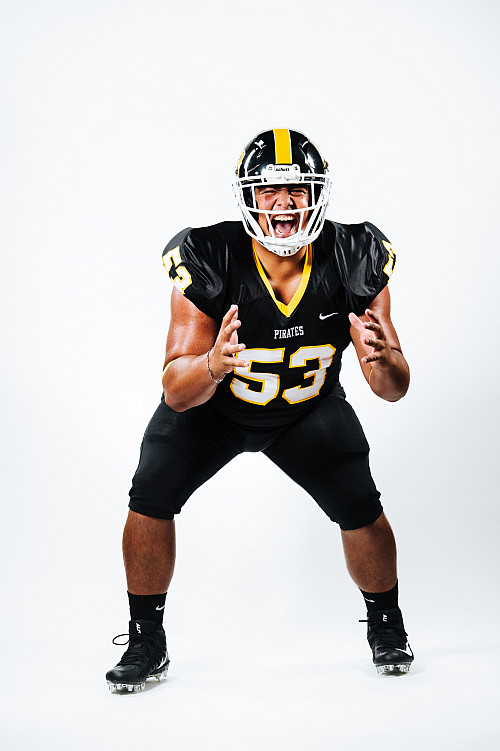
As a student–athlete, setting goals is critical to staying on track toward accomplishing your dreams. Prior to beginning my football career at SU, I always had goals in mind, but I had never sat down and written them out.
I credit my football coaches for teaching me the importance of writing down and creating a strategy to attack my goals. At the beginning of each season since my first year, I met with my offensive line coach, Tom Ross, to develop a plan for accomplishing my short-term objectives, which would then provide me the opportunity to accomplish my dreams later on. In this process, I would write down what my short-term goal was (e.g., “I want to get eight hours of sleep every night this semester”). Then, I would write how I was going to accomplish this (e.g., “Finish all my homework before 10:30 p.m., and stay off my phone once I get into bed”). Next, I would repeat the same process and write down my dreams and how I was going to accomplish them.
I learned that making your goals and dreams measurable is imperative. A goal like “I want to be an All-Conference player” is vague and leaves you with nothing to strive for. Instead, opt for something like “I want to successfully complete 95% of my blocking assignments per game,” or “I want to shoot 90% from the free-throw line each game, or “I want to hit 85% of all fairways in regulation at each golf tournament this year.” Making goals measurable allows you to see the progress that you’re making toward accomplishing them, and will allow you to develop a plan on how you’re going to attack them. Keeping your goals practical and achievable also prevents you from putting too much pressure on yourself in the process.
These goals weren’t all directly related to football or academics, either. I had short-term goals related to my spirituality, my relationships with friends and family, and other hobbies of mine. Simply learning about the importance of goal setting gave me something that allowed me to prioritize my time to give me the best opportunity to accomplish a wide range of goals and to be successful at Southwestern.
Procrastination will be your worst enemy
I don’t know how, but it always happens: all your tests and writing assignments will be due the day after you have to come back from a long road trip. It never fails. That is why avoiding procrastination by getting your work done early is key to succeeding as a student–athlete at Southwestern.
It’s definitely not easy transitioning from high school to college, where now you have the freedom to do what you want. There’s no one nagging you to do your work or wake up early. You are a young adult, and you have the freedom to decide what you want to do. Therefore, it is imperative that you find time in your schedule to study on your own and complete as much homework as possible while you’re not busy with your sport. Find your study area on campus far away from your dorm room to avoid any temptations of catching a quick nap or playing video games with your friends. When you’re studying, stay off your phone. The memes won’t get you a degree. Your hard work and dedication to becoming a collegiate athlete have allowed you to get to this point in your life, but now it’s time to use that extraordinary work ethic to be the best college student you can be as well. Even if it’s just an hour that you have between classes, doing that extra bit of studying can be the difference between getting enough sleep at night or pulling all-nighters at the Smith Library Center, which can also be the difference between being a successful or unsuccessful student–athlete.

FOMO is real
FOMO (fear of missing out) will definitely hit you at one point or another in your time as a student–athlete. Seeing your non-student–athlete friends going out and partying on a school night while you have a game the next day or workouts early the next morning will definitely make you consider if being a Division III athlete is worth it, but it’s just all part of the sacrifices that you must make in being a student–athlete. Just understand that the sacrifices you’re making now will pay dividends in the future. When you get the chance to travel and compete in different states, when you become an All-Conference player, or even when you receive a conference championship ring with your name emblazoned on the side of it, you’ll realize that all the hard work and sacrifices that you made were definitely worth it. Not to mention, your résumé saying that you played a collegiate sport for four years while maintaining high levels of academic achievement will separate you from thousands of other job or graduate-school applicants once you graduate from SU.
Injuries will happen
This may come as a given, but for an athlete whose worst injuries coming into college were a few sprained ankles and some pinched nerves in my shoulder, realizing that major injuries are a possibility when becoming a collegiate student–athlete is crucial. Just like a lot of athletes, I thought I was invincible. I thought that no injury could sideline me and that I would play through any kind of pain imaginable because I loved competing in my sport. But this simply is not the case at the collegiate level, where the game is much faster and competition is more intense.
In the first quarter of the first football game of my junior year, I tore my anterior cruciate ligament (ACL) and was immediately sidelined for the rest of the season. I’ll never forget what I felt like when the doctor told me there was no way I could play and that I would need surgery to repair my torn ligament. I was truly devastated, and there were a lot of times when I questioned whether or not I even wanted to try to play football again.
However, thanks to the incredible athletic training staff at SU, I went through eight months of intensive rehab to strengthen my leg so that I could make a successful comeback for my senior season. The athletic training staff was there for me every step of the way to guide me in rehab workouts, provide ice treatments and knee massages, and support me when the rehab got a little painful. I credit a lot to them for me being able to come back in my senior year and continue playing the game that I love. Without the athletic training staff at SU, our athletics programs would not be as successful as we are. They’re here to help us through minor injuries like tight backs and sprained ankles to the major injuries like dislocated shoulders and concussions. This staff truly cares about athletes on campus, and they want to see us succeed. Injuries may be unavoidable, but the great training staff at SU will do everything they can to help you get back on the field.
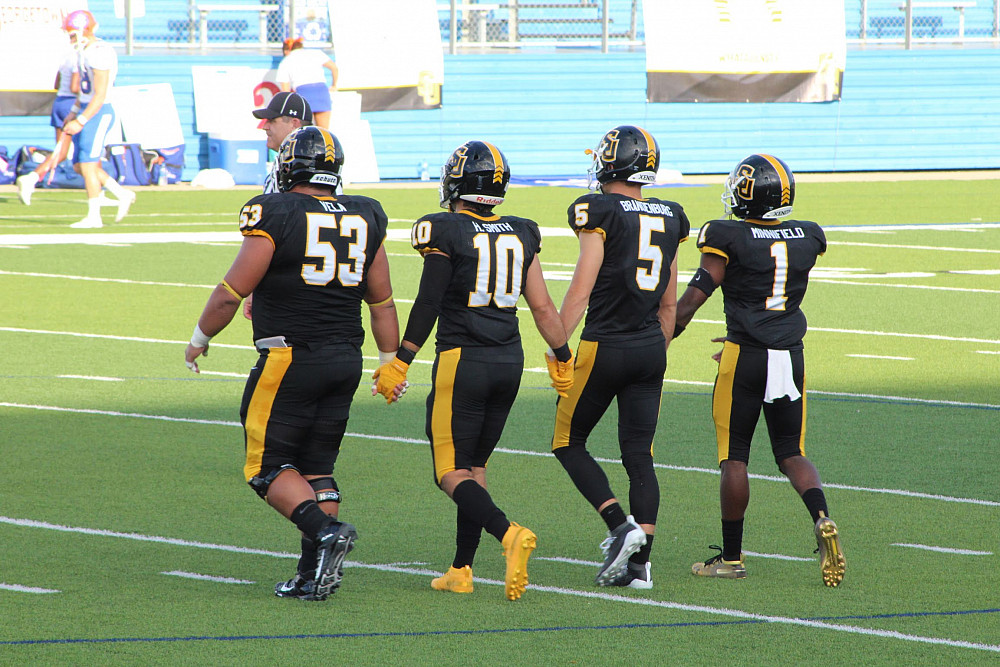
College teammates will quickly become family
I would have never expected just how close I would become to the teammates that I’ve had in college. My best friends in college are all current or former members of the football team, and I’ve made some amazing memories with them. Getting the chance to truly know these guys and develop close relationships with them has been one of the best parts about my college experience. I’ve met their families and visited their hometowns, and I know their dreams and goals just as much as my own. Through all the practices, games, off-season workouts, roast sessions in the Commons, parties, freestyle sessions, and trips to Whataburger (Thicc Man Thursday shall live forever), my teammates have become like brothers to me, and I love them all like they’re my own family.

Get involved on campus
One of the beautiful things about Division III athletics is that student–athletes are truly supported and encouraged to participate in nonathletic pursuits that can enhance our overall educational experience. This can include joining a student organization, getting an on-campus job, or volunteering in the community. My first year at SU, I was so focused on succeeding in athletics and academics that I did not get involved too much on campus. As I entered my sophomore year, I made it a short-term goal (see “Goal setting is essential” above) that by the end of the fall semester, I was going to join a student organization and meet three new people each week outside of football and my normal classes. This led to me joining Student Foundation, which then led to me joining SU Radio, which then led to me becoming an intramural referee, which then led to me becoming a student mentor at Purl Elementary, which then led to me becoming the announcer for men’s lacrosse. All of these experiences have definitely enhanced my experience at Southwestern while not impeding my academics or athletics at all. My only quarrel about all of this is that I wish I had gotten involved with these organizations during my freshman year.
Call your parents and grandparents
As much as this seems like a given, it is still worth noting: call your parents and grandparents. Just like you’re getting adjusted to your new life as a first-year in college, they are also getting adjusted to not having you around 24/7 like they were used to. You not being home affects them just as much as it affects you. Set aside some time in your day at least once a week to call them, check up on them, and let them know how you are doing. This will mean the world to them, and it can help cure any homesickness or stress that you may be feeling.
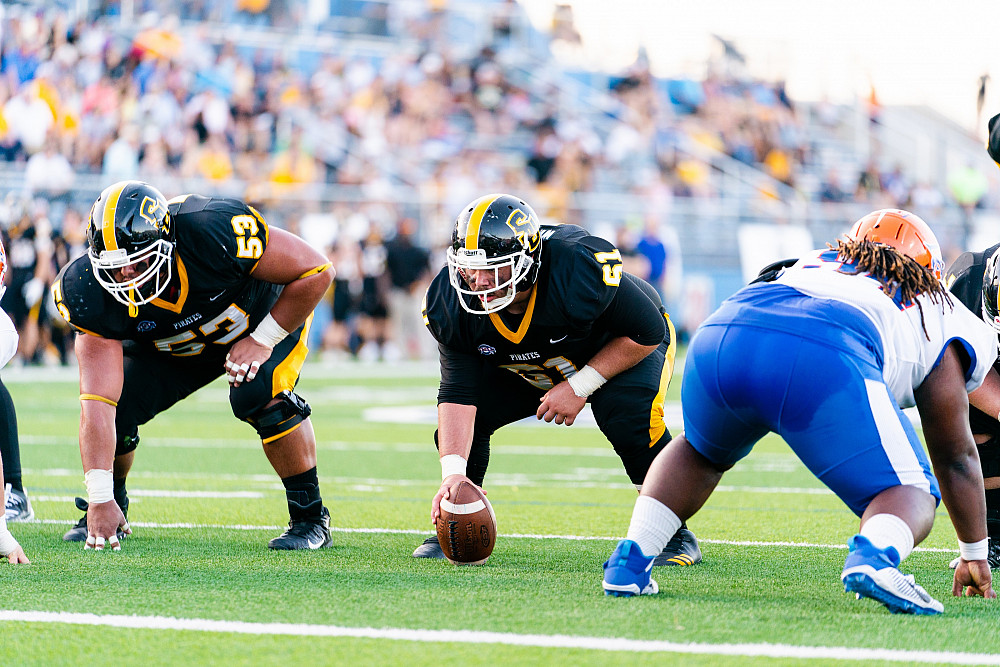
It will be one of the most challenging things you ever do, but it will be worth it
As terrible as the early-morning workouts, late-night study sessions, or long bus rides may seem at that moment, you will truly miss them once your playing career is over. There will probably be times throughout your fours years in college when you will question whether you even want to continue playing your sport anymore. The constant grind of balancing academics, athletics, and a social life can take its toll on even the toughest individuals. It is important that you realize, though, that through all of the mental, emotional, and physical exhaustion that you may experience, being a collegiate student–athlete is one of the most rewarding experiences an individual can go through, and it can teach you life lessons that compare to nothing else.
As I look back on everything that I went through in my four years as a student–athlete at Southwestern—the injuries, the awards, the late nights studying, the exhausting practices, the long bus rides, the film sessions, the conference championships, the plane rides, the early-morning workouts, and the memorable games—I truly have no regrets. I have thoroughly enjoyed my time as a collegiate student–athlete, and I wouldn’t change this experience for the world. I am extremely grateful to Southwestern University for this opportunity and for preparing me for life after graduation.















